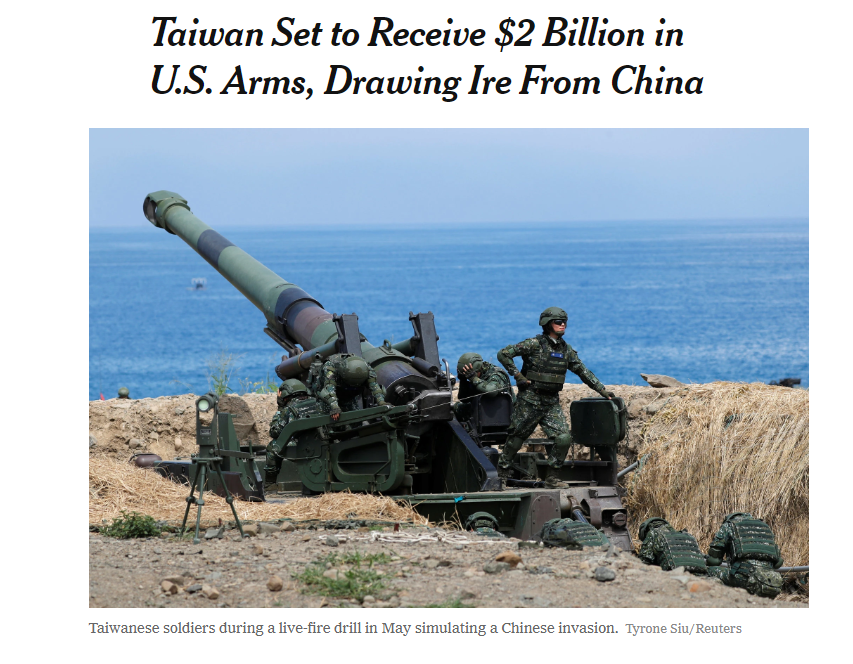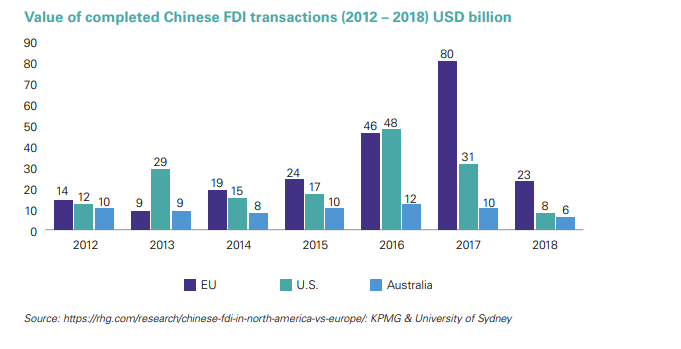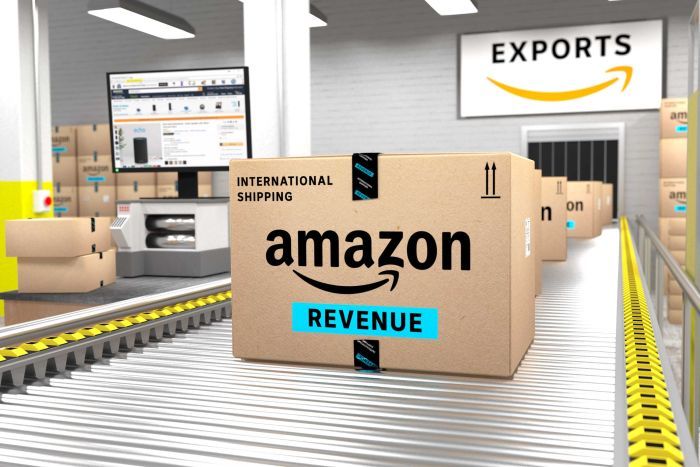Coping with Global Financial Risks or Time for a Rerun of the Petrov Affair?

By Denis Bright
The federal LNP’s rerun of the Petrov Affair in self-proclaimed investigative scoops about a request for asylum from Wang Liqiang should not divert attention from the ever-present threats of financial and corporate breaches of workplace rights in a slowing global economy.
In another time, the ongoing sagas about espionage threats from Soviet Russia cost Opposition Leader Dr Evatt the 1954 election in an Australia in a country that was at last recovering from the post-Korean war recession. Enjoy Barry Humphrey’s coverage of the Petrov Affair with the blessing of that comical burnt-out diplomat Sir Les Patterson to touch base with events now half-forgotten but relevant once again.
In our more sombre contemporary world, the federal LNP is now embroiled in President Trump’s trade and investment war with China. While the federal LNP is desperate to talk up the trade levels of positive economic relations with China from exports of resources, foodstuffs, tourism, tertiary education services and more controversial investment in Australian real estate, the federal government is hesitant about higher levels of overall Chinese investment in key sectors of the economy.
Relationships between Australia and China extend far beyond the usual net export staples.
Thanks to initiatives taken by the federal LNP soon after its re-election in 2013, Australia has substantial holdings in the Beijing based Asian Infrastructure Investment Bank (AIIB) comparable to investment holdings by Indonesia, South Korea, Britain and France. India is the most prominent regional partner in the AIIB. Australia’s participation in the AIIB met disapproval from the Obama Administration which successfully persuaded Japan not to participate in the AIIB. This is one case where the federal LNP decided to act in a more independent manner in the delivery of our economic diplomacy.
The AIIB assists in China’s financial diversification and assists in underwriting Belt and Road Initiatives (BRIs) globally but Australia has reversed its willingness to participate in specific development projects. The weighting of voting rights on the AIIB Board is comparable to deposits held. The deposits held by the AIIB earn dividends for Australia which could be extended by greater participation in new BRI projects in both Australia and adjacent Pacific island countries through joint partnerships with Australian firms.
Far worse than the boycott of AIIB projects or the failure of the US and Japan to join the AIIB is our involvement in war games directed against China by the Trump Administration such as the sale of a new generation of weapons to Taiwan (New York Times 9 July 2019.

This is a reflexive support for President Trump’s trade and investment war with China at a time of growing strategic tensions in the Taiwan Straits and the South China Sea.
As a loyal supporter of the Australia-US Alliance, there are dangers that the federal LNP might go too far and jeopardize the longer-term economic benefits of a continued open relationships with China as the US presidential year approaches.
The consequences of this dangerous strategic game with an eye on US campaigning strategies are highlighted in news coverage by respectable mainstream US news outlets like the New York Times:
TAIPEI, Taiwan — The United States has tentatively approved the sale of $2 billion in military hardware to Taiwan, demonstrating support for its unofficial ally in a move likely to exacerbate deteriorating ties between Washington and Beijing.
The Defense Security Cooperation Agency, part of the United States Defense Department, notified Congress of two proposed arms sales on Monday. The first notification included 108 M1A2T Abrams tanks, as well as Hercules armored vehicles and heavy equipment transporters. The second included more than $220 million in Stinger antiaircraft missiles.
The tentative approvals come as relations between the United States and China are already being tested by a trade war and the decoupling of technology supply chains. The armaments would provide Taiwan with greater deterrence capabilities against the growing military threat from China, experts said.
The Economic Consequences of Heightened International Tensions
The longer-term effects of the US trade and investment wars with China affects Australia by a current drought on private sector capital investment flows which are lead indicators of a slowing global and national economy. Reduced GDP Growth rates are still in positive territory due to long-established trading connections largely with the countries of the Asia-Pacific Basin including the USA as shown by the percentage trend-lines from the past decade:
Percentage Changes in Australia’s Annual Economic Growth Rate

The longer-term effects of the US trade and investment wars with China affects Australia by a current drought on private sector capital investment flows which are lead indicators of a slowing global and national economy. Reduced GDP Growth rates are still in positive territory due to long-established trading connections largely with the countries of the Asia-Pacific Basin including the USA as shown by the percentage trend-lines from the past decade.
Confirmation of the emergent trends in private sector capital expenditure came with the release of ABS data on 28 November 2019:
Australia Private Capital Expenditure
Private capital expenditure in Australia dropped by 0.2 percent quarter-on-quarter in the three months to September 2019, following a revised 0.6 percent fall in the previous period and compared with market expectations of a 0.1 percent drop. This was the third straight quarter of decline in private investment, mainly due to a decrease in capital expenditure for equipment, plant and machinery (-3.5 percent vs 2 percent in Q2). On the other hand, spending for building and structure rebounded (2.7 percent vs -3 percent). Through the year to the third quarter, private capital expenditure shrank 1.3 percent. Private Investment in Australia averaged 1.33 percent from 1987 until 2019, reaching an all-time high of 15.70 percent in the second quarter of 1996 and a record low of -8.60 percent in the third quarter of 2015. Source: Australian Bureau of Statistics as Percentage Quarterly Changes in Capital Expenditure Levels:

The Mid-Year Economic and Financial Outlook (MYEFO) due for release before the holiday season in December 2019 will undoubtedly play down the consequences of longer-term investment trends in favour of a likely emphasis on the forthcoming budget surplus and continuing positives from exports of commodities and services. Keep watching this space for the expected hype in the MYEFO data.
An early release of the data might accentuate the positives for media releases next month before the release of the next quarter of gross capital expenditure data on 27 February 2020.
Australia’s guarded support for Trump era investment and strategic concerns about a re-emergent China will not deliver new BRI initiatives in the areas of greatest investment needs in the Australian economy to consolidate some positive gains from reductions in official interest rates and federal government initiatives in renewal of plant and equipment.
Reliance on interest rate reductions and generous depreciation write-offs for new plant and equipment or promised investment flows from the US and other strategic allies are insufficient to offset the decline in Chinese investment levels since 2016 on the federal LNP’s own watch:

The loss of momentum in Chinese investment in non-strategic sectors such as healthcare, mining, alternative energy and food production has little relevance to immediate security threats as shown by the harmless directions of current investments:

There are indeed security and human rights concerns in the roles played in Australia by Amazon as major distributors of Roger Faligot’s print and eBook on Chinese intelligence networks according to Maya Wolfe-Robinson’s article in The Guardian:
Union workers have staged the final in a series of protests outside an Amazon warehouse in Doncaster over “unsafe” and “appalling” working conditions. According to the GMB union, workers urinate in plastic bottles rather than go to the toilet during their shifts, and pregnant women are forced to stand for hours on end.
The protest follows international campaigns last week to coincide with the retail giant’s Prime Day promotion, with demonstrations being held outside seven British warehouses – what the company calls “fulfilment centres” – and in seven US cities.
Mick Rix, the GMB’s national officer, said Amazon workers wanted to send a message to Jeff Bezos, the company’s founder and CEO, that they were people, not robots. “The conditions our members work under at Amazon sites are appalling. The reports we get from GMB members are horrific and suggest the practices Amazon employed at Doncaster create unsafe work, in comparison to many other warehouse distribution centres,” he said.
Exploitation of workers at Amazon plants globally is compounded by systematic tax evasion in host countries as noted in a recent ABC news article on the company’s activities in Australia:
Amazon has paid little tax in Australia since setting up its local online retail business, its financial accounts show, with possibly hundreds of millions of dollars flowing offshore last year.
The company has used a range of tactics and loopholes to legally reduce the income taxes it pays around the world.
ABC News can reveal that, in Australia, Amazon’s three local entities had combined revenues of more than $1 billion but a combined tax bill of just over $20 million in 2018.
While corporate tax is based on profits, not revenue, governments globally are currently trying to crack down on tech giants shifting income offshore.
The Seattle-based company headed by the world’s second richest man, Jeff Bezos, basically treats Australia as a marketing operation across some of its entities.

Image from abc.net.au (photo Alistair Kroie / ABC News)
The Australian economy had moved further in Budget 2019-20 from commitment to the socially progressive light on the hill to a new era of Faustian arrangements with corporate moguls.
In a final desperate move, the federal LNP is negotiating with representatives from the extreme far-right of Australian politics to get its latest union busting legislation, tax concessions for the highest income families and large private companies through the senate.
The rerun of the Petrov affair is a hysterical diversion strategy that worked well over seventy years ago to create tensions within the Labor opposition to justify more nuclear weapons tests on Australian soil and nearby Pacific Islands where whole populations were moved to facilitate hydrogen bomb tests in the Marshall Islands and Micronesia to appease so called friendly military industrial complexes.
Let’s hope President Trump is drummed out of office before this farce repeats itself again. Support for the Taiwan lobby in its confrontation with China prior to national elections on 11 January 2020. President Trump’s support for the far-right government of President Tsai Ing-wen embroils Australia in an unwelcome strategic threat with major economic implications for Australians (Yimou Lee and Ben Blanchard: ‘Taiwan ruling party says China ‘enemy of democracy’ after meddling allegations,’ Reuters).
The Australia’s involvement in such sagas has little to do with commitment to the living standards and social cohesion of our own social market economy in a difficult transitional era after the both mining and property booms.
 Denis Bright (pictured) is a member of the Media, Entertainment and Arts Alliance (MEAA). Denis is committed to citizens’ journalism from a critical structuralist perspective. Comments from Insiders with a specialist knowledge of the topics covered are particularly welcome.
Denis Bright (pictured) is a member of the Media, Entertainment and Arts Alliance (MEAA). Denis is committed to citizens’ journalism from a critical structuralist perspective. Comments from Insiders with a specialist knowledge of the topics covered are particularly welcome.
Like what we do at The AIMN?
You’ll like it even more knowing that your donation will help us to keep up the good fight.
Chuck in a few bucks and see just how far it goes!
Your contribution to help with the running costs of this site will be gratefully accepted.
You can donate through PayPal or credit card via the button below, or donate via bank transfer: BSB: 062500; A/c no: 10495969










16 comments
Login here Register here-
Missy -
Leila -
Tessa_M -
James Robo -
Chris -
Matters Not -
rubio@coast -
Lara G. -
wam -
Marcia -
Denis Bright in Brisbane -
Paul -
Stella -
Marcia -
Marcia -
Chris
Return to home pageThe new corporate giants can tug at our emotions to lead everyone back to a predemocratic era where military conflict is just another business.
Why do Australians need to live in the shadows of the big four technology companies Amazon, Google, Apple and Facebook?
Instability in both Hong Kong and Taiwan prose a real challenge to peace and investment flows to Australia from Asia.It is important for Australia as an Alliance partner to distance itself from President Trumps provocations.
China has tried peaceful diplomacy to improve relations with Taiwan. Australians must understand that there is only One China.
Narcissism lives on in the shadow of corporate giants like Amazon who want us to have reservations about China’s effort to bring millions out of poverty worldwide
Re:
The metaphorical elephant in the room ripe for political exploitation by an Opposition but it’s almost completely ignored. That it’s a wicked problem cannot be denied but that fact should only be of immediate concern to the ruling party of the day. For those occupying the Opposition benches it should be the proverbial Manna from Heaven. Perhaps it’s their underlying atheism that’s holding them back?
Now is the time for a full frontal attack. Follow Macron’s lead.
Sir Les Patterson is not like any Australian foreign minister in recent times. Old Les remains a comical Aussie bloke who represnets us in the corridors of power. I am sure thatLes would have a soft spot for China because of his imagined associations with Gough Whitlam from the 1970s. Gough himself wanted no people’s foreign minister and held onto this ministry for one year before giving the job to Don Willesee in a cabinet reshuffle. Senator Marise Payne is surely the complete opposite to Old Sir Les and reveals very little about herself.
Seems that Australia like the Philippines is caught between links to both the USA and China: Which one will prevail in time?
What a god send was the darwin airport’s weeping woman. Pig iron bob, aided by immigration, got a lousy 10 years of standing still at lord’s on the image of mrs petrov being torn from the arms of russian ‘goons’.
When there is a cross himalaya alliance the west will be customers.
Scummo has lost the unions attack because of inequality of white collar crime.
Go Albo follow hanson’s lead and smack scummo.
ps rubio Sir Les is alive and well in canberra under the alias of bob katter.
Trashing economic relations with China to please the Trump Presidency is a threat to our living standards, risks involvement in war and will cost more in purchases of military equipment mainly from the USA.
Encouraging the Morrison team to put Australia first justifies more support for Labor as the only alternative government which is just ten seats away from majority government.
Why dabble with exotic alternatives when a clear solution is available.
I liked wam’s witty comment about Bob Katter: Has Sir Les defected to support an ex-Joh minister?
More likely, Sir Les would be promoting the benefits of Belt and Road Invetsment initiatives to Bob Katter through rambling discussions on the advtanges of transport links to Darwin from the Kennedy Electorate, food bowl projects in the Savanna North through extended affordable water conservation schemes and the promotion of more Asian tourism, not just from China.
Seems that Bob Katter would have to side more with Labor to achieve these outcomes.
I have never followed Bob Katter in Hansard but you have motived me to check if he reflexive votes with the LNP because of his conservative values.
Excellent article Denis!!!
Thanks for sharing this amazing research and history. It’s so refreshing and much appreciated.
Denis, Thanks for an interesting article about US-China relations and the implications for Australia
For wam
Continue the fight for someone to take up the comical baton from Sir Les.
As an apologist for the Progressive Labor Left , old Sir Les played a significant political role as a self proclaimed grassroots adviser to Gough Whitman.
Australian politics is now deadly serious without characters like Al Grasby, Fred Daly and the mythical Sir Les.Finding such characters is so important in bringing the outer suburbs and regions back to Labor.
Labor’s factional insiders do not encourage mirth and need to learn that their excessive seriousness is a political problem for Labor’s recovery in 2022.
Wam keep looking for antiestablishment replacement for Sir Les
Insightful article – I learnt a great deal especially about Petrov Affair.